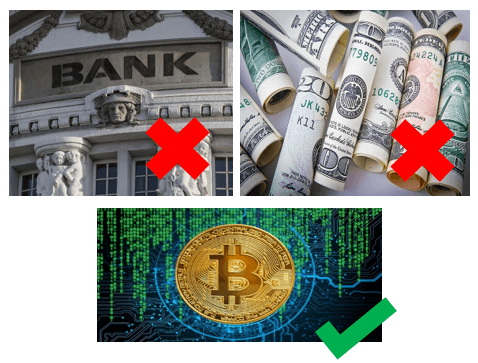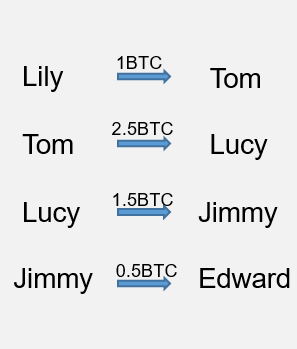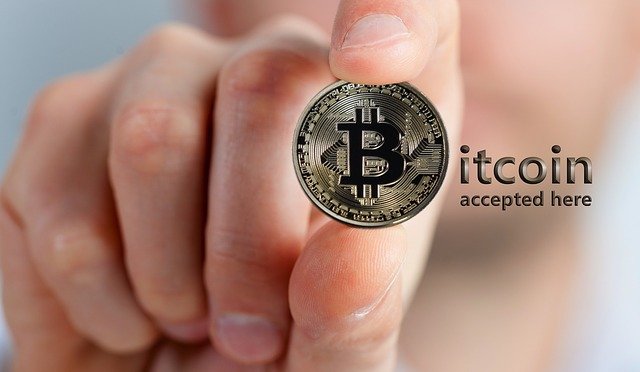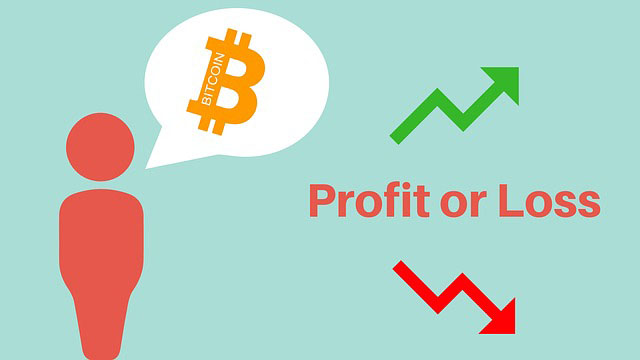Fiat currencies
Crypto Currencies
What Is Bitcoin?
What Is Bitcoin?
Bitcoin is the first digital form cryptocurrency without physical shape that was announced in 2008 (and launched in 2009). No central bank or any other organization controls it, but only balance kept on a public ledger by thousands of computers distributed around the world. Anyone in the world can access the ledger and participate in the ecosystem by downloading open-source software. People can send and receive Bitcoin to anybody at any time, from anywhere. Also, the features of can't be censored and counterfeit makes it popular around the world. Thus, the popularity of Bitcoin triggers the launch of thousands of other cryptocurrencies, so-called altcoins. A large sum of people using the currency as an investment. However, some people criticized its use in illegal transactions(such as money laundering), the large amount of electricity used by mining, price manipulation, thefts by hackers, and extortion. Some economists and commentators have characterized it as a speculative bubble at various times. Somebody even takes the opinion of it was a Ponzi scheme.

How Does Bitcoin Work?
- The bitcoin ecology is combined by numerous computers (also referred to as "nodes" or "miners") that all run bitcoin's code and store the ledger data(blockchain). A blockchain can be thought of as a collection of blocks, every transaction will be recorded on a specific block.

- Let's take an example to simulation the transaction in Bitcoin ecology: When Lily makes a digital transaction to her friend, Tom, she's not sending the money in the traditional way. It's not like the central bank that receives Lily's request and handling the dollar bill to Tom. It is more like her writing on a sheet of paper (that everyone can see) that she's giving one dollar to Tom. When Tom wants to send the same money to Lucy, she can see that Tom has them by looking at the sheet. It is basically a peer-to-peer mode, without authority organization to process transfers.

- The sheet written by each trader is what we call "blockchain", everyone in the network all has the same copy on their devices. When someone made a digital transaction, the information of the transfer will be broadcasted directly to the peer-to-peer network. Then all participants in the network will connect with each other to synchronize new information.

What Makes Bitcoin Valuable?
Bitcoin is the first cryptocurrency with the features of decentralized, finite supply, secure and international. Many supporters believe that digital currency is the future for the reason of it facilitates a much faster, low-fee payment system for transactions across the globe. Although it is not backed by any government or central bank, bitcoin can be exchanged for traditional currencies nowadays and accepted by more and more merchants. The following features may explain what makes Bitcoin valuable:
- Acceptability: Nowadays, Bitcoin has the trait of global availability because a lot of merchants accept Bitcoin payments. You can get Bitcoin from hundreds of exchanges by fiat easily.

- Transparent and neutral: All information concerning the Bitcoin money supply itself is readily available on the blockchain for anybody to verify and use in real-time. No individual or organization can control or manipulate the Bitcoin protocol because it is cryptographically secure.
- Convenient: You can send and receive bitcoins anywhere in the world at any time.
- Secure: Bitcoin transactions are secure, irreversible, and do not contain customers' sensitive or personal information. It is the digital currency that is censorship-resistant, which attract people who care about privacy problem to use it.
- Finite supply and hard to produce: BTC supply is more limited than silver and gold supply, as there will only ever be 21 million BTC introduced to the network's economy. Moreover, Bitcoin is manufactured through mining which is becoming harder and harder. In this case, some investors view Bitcoin as a store of value.
Is It Secure? legal?
- The Bitcoin technology - the protocol and the cryptography - has a strong security track record. Bitcoin's most common vulnerability is in user error. Bitcoin wallet files that store the necessary private keys can be accidentally deleted, lost, or stolen. This is pretty similar to physical cash stored in a digital form. Fortunately, users can employ sound security practices to protect their money or use service providers that offer good levels of security and insurance against theft or loss. Another security problem is the value of Bitcoins has gone up and down over the years since it was created, the value could drop significantly at any moment and investors could lose a lot of money.

- Bitcoin is not issued, endorsed, or regulated by any central bank, there are still no uniform international laws that regulate bitcoin. Many major and developed countries allow the use of bitcoin, such as the U.S., Canada, and the U.K. Other countries, however, are opposed to any use of bitcoin, including Egypt and Vietnam. Also, there are some countries that are not clearly determined the legality of bitcoin, preferring instead to take a wait-and-see approach.
What Is the History of Bitcoin?
- 2008: The domain name bitcoin.org was registered on 18 August. On 31 October, a link to a paper authored by Satoshi Nakamoto titled Bitcoin: A Peer-to-Peer Electronic Cash System was posted to a cryptography mailing list.
- 2009: On 3 January, the bitcoin network was created when Nakamoto mined the starting block of the chain, known as the genesis block.
- 2010: After handed the network alert key and control of the code repository over to Gavin Andrese. The mysterious creator Satoshi Nakamoto disappeared.
- 2011: The first major users of bitcoin were black markets, such as Silk Road. During its 30 months of existence, beginning in February 2011, Silk Road exclusively accepted bitcoins as payment, transacting 9.9 million in bitcoins.
- 2012: The Bitcoin Foundation was founded in September to promote bitcoin's development and uptake.
- 2013: The US Drug Enforcement Administration listed ₿11.02 as a seized asset in a United States Department of Justice seizure notice pursuant to 21 U.S.C. § 881. On 23 June. This marked the first time a government agency had seized bitcoin. On 5 December, the People's Bank of China prohibited Chinese financial institutions from using bitcoins.
- 2016: In July, the CheckSequenceVerify soft fork was activated. In October, Bitcoin Core's 0.13.1 release featured the "Segwit" soft fork that included a scaling improvement aiming to optimize the bitcoin blocksize.
What Are the Problems With Bitcoin?
- Price and volatility: The price of bitcoins has gone through cycles of appreciation and depreciation. As of 30 September 2014, Bitcoin has volatility seven times greater than gold, eight times greater than the S&P 500, and 18 times greater than the US dollar, according to Mark T. Williams. It is referred to by some as bubbles and busts.

- Acceptance: The overwhelming majority of bitcoin transactions take place on a cryptocurrency exchange, rather than being used in transactions with merchants.
- Regulation: Because of bitcoin's decentralized nature and its trading on online exchanges located in many countries, regulation of bitcoin has been difficult.
- Energy consumption: Bitcoin has been criticized for the amount of electricity consumed by mining. 2021 estimate from the University of Cambridge suggests bitcoin consumes more than 178 (TWh) annually, ranking it in the top 30 energy consumers if it were a country.
Stay tuned to CoinCarp Social Media and Discuss with Us:
X (Twitter) | Telegram | Reddit
Download CoinCarp App Now: https://www.coincarp.com/app/
- 9 Costly Mistakes Crypto Holders Make (And How to Avoid Them) Beginner Apr 29, 2025 3m
- Axiym Reaches $132 Million in Volume, Streamlining Global Payments via Avalanche Beginner Apr 24, 2025 2m
- NodeHaus Debuts as Real-Time RPC Monitoring Tool for Blockchain Foundations Beginner Apr 24, 2025 2m
- Hermetica Launches 2.0 Update, Boosting Bitcoin-Backed Stablecoin Transparency and Usability Beginner Apr 23, 2025 2m